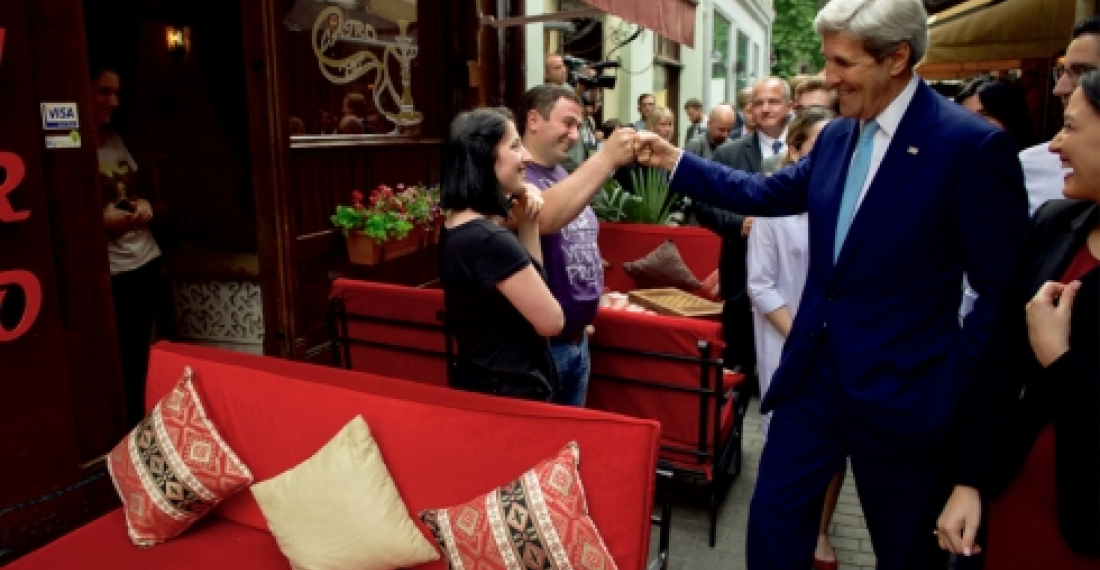US Secretary of State John Kerry pledged extra military aid to Georgia on Wednesday, after meeting senior officials in his first visit to the country as Secretary of State.
"The United States stands firm in its commitment to Georgia’s sovereignty, independence, and territorial integrity within its internationally recognized borders," Kerry told reporters at a joint press conference with Prime Minister Giorgi Kvirikashvili.
"Russia's occupation and militarization of parts of Georgia's territory are unacceptable. We continue to call on Russia to fulfill its obligations under the 2008 ceasefire agreement, including a withdrawal of its forces to pre-conflict positions," Kerry said.
The announcement is a boost to Georgia-US relations. Before Wednesday, military partnership between the two countries had mainly focused on training Georgian troops for combat in Afghanistan and Iraq. The new agreement will include greater cooperation, information sharing and shared defence capacity, as well as the financial aid, according to a joint document released by Kerry and Kvirikashvili.
The two men chaired a meeting of the US-Georgia Strategic Partnership Commission before holding a joint press conference at 3.30pm local time. Kerry is also meeting opposition politicians in Tbilisi. Kerry headed to Ukraine early on Thursday, before a two day NATO summit in Warsaw. There he will be joined by President Barack Obama at the summit, running from July 8-9. A key topic at the summit will be how to keep Russia at bay in former Soviet states such as Georgia, as well as Ukraine and the Baltic states.
In Tbilisi, Kerry also met with President Giorgi Margvelashvili in the evening. The two men will meet again in Warsaw over the weekend
Kerry also met opposition politicians Davit Bakradze and Giga Bokeria of the United National Movement (UNM), as well as Irakli Alasania and Victor Dolidze of the Free Democrats (FD). He also saw Davit Usupashvili, speaker of the Georgian parliament, a Republican.
“We spoke about those documents, which were signed yesterday, which will help to significantly increase Georgia’s security and self-defense capabilities,” said Usupashvili.
John Kerry also spoke of Georgia’s upcoming parliamentary elections, which are set to take place in three months.
“Georgia has been a model of peaceful democratic change and of improving of electoral conditions for others in the region,” he said after meeting Kvirikashvili. “Free and fair elections will be an important step towards greater security, towards greater stability and towards prosperity for all of the people of this country.”
SOURCE: commonspace.eu and agencies
PHOTO: State Department







